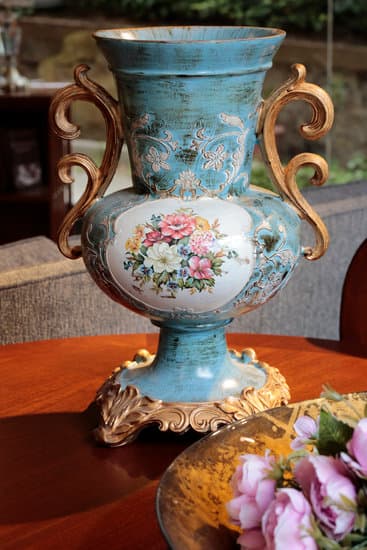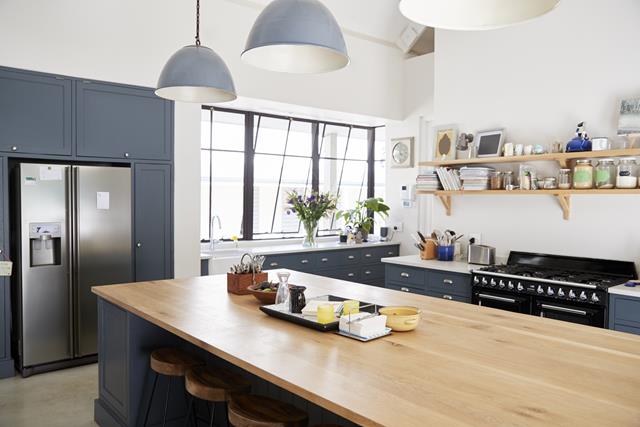Decorating a Puja Mandir at home is not just about beautifying a sacred space; it is about creating a spiritual haven where you can connect with the divine. A Puja Mandir, also known as a prayer room or altar, holds immense importance in Hindu households. It serves as a place of worship and reverence, where families gather for daily prayers and offer their devotion to the deity of their choice.
A Puja Mandir is not merely a piece of furniture but holds deep significance and symbolism. It represents the presence of the divine within one’s home and serves as a reminder of spirituality in everyday life. The act of decorating the Mandir goes beyond aesthetics; it is an expression of devotion, love, and adoration towards the higher power.
Choosing the right location for your Puja Mandir is crucial. Ideally, it should be placed in a quiet and peaceful area of your home where you can meditate and find solace. Selecting a well-lit spot ensures that the energy in that space remains vibrant and positive. Additionally, consider the size and design of your Mandir to ensure it fits harmoniously within your overall home decor.
In this article, we will guide you through the process of decorating your Puja Mandir at home. We will explore essential elements such as ornate idols, proper lighting, traditional elements like bells and diyas, vibrant colors, and materials for visual appeal. Furthermore, we will delve into arranging puja accessories and essentials such as offering plates, incense holders, lamps, sacred books, bells, musical instruments, among others.
Stay tuned as we provide tips on maintaining cleanliness and sanctity in your Puja Mandir through cleaning rituals and organizing techniques. Moreover, we will discuss how you can personalize your sacred space by adding unique touches such as personal photos or family mementos along with religious artifacts. Lastly, we will share insights on taking care of your Puja Mandir as a sacred space with daily practices of prayer and devotion, refreshing flowers and offerings, and conducting special ceremonies and rituals.
Join us on this spiritual journey as we create divine energy in our homes through the art of decorating a Puja Mandir.
Understanding the significance and symbolism of a Puja Mandir
A Puja Mandir holds great significance and symbolism in the Hindu faith. It is not simply a piece of furniture or a decorative item, but rather a sacred space where devotees can connect with the divine. Understanding the significance and symbolism of a Puja Mandir can help one appreciate its importance and create a more meaningful spiritual practice.
The word “Puja” means worship, and a Puja Mandir is a designated place where Hindus perform their daily rituals, prayers, and offerings. It is believed that having a dedicated space for worship creates an environment that is conducive to spiritual growth and attracts positive energy.
Symbolically, the Puja Mandir represents the abode of the deities. It serves as a gateway between the physical world and the spiritual realm. The idols placed within the Mandir represent various deities or aspects of divinity, providing focal points for devotion and meditation. The act of performing puja within this sacred space is seen as a way to establish a personal connection with the divine.
Additionally, the construction and presence of a Puja Mandir in one’s home signify devotion, faith, and commitment to upholding religious traditions. It reinforces the importance of spirituality in daily life by providing a constant reminder to engage in prayer, reflection, and gratitude.
Choosing the right location for your Puja Mandir
When considering setting up a Puja Mandir at home, choosing the right location becomes crucial for creating an auspicious environment. Here are some factors to consider when determining where to place your Puja Mandir:
- Accessibility: Select an area that is easily accessible so that you can comfortably perform your daily rituals without any hindrances.
- Respectful Placement: Place your Puja Mandir on an elevated surface such as a table or platform ensuring that it is never kept on the ground or near unclean areas like bathrooms.
- North-East Direction: The north-east corner of the house is considered highly favorable as it is believed to be the direction of positive energy flow. Placing your Puja Mandir in this direction can amplify its sanctity.
- Quiet and Serene Space: Choose a location that provides a calm and peaceful atmosphere where you can immerse yourself in prayer without distractions.
Remember, irrespective of its location, what matters most is the sincerity and devotion with which you approach your prayers. A well-placed Puja Mandir can enhance your spiritual practice, but ultimately, it is your inner connection with the divine that truly matters.
Choosing the right location for your Puja Mandir
One of the most crucial aspects of setting up a Puja Mandir at home is selecting the perfect location for it. The placement of the Mandir plays a significant role in creating a serene and divine atmosphere for your daily prayers and rituals. Here are some factors to consider when deciding on the ideal spot for your Puja Mandir:
- Accessibility: Ensure that the location you choose allows easy access for daily prayers and offerings. It should be easily reachable, preferably on the ground floor or an area with minimal stairs, especially if elderly family members or guests will be using it.
- East-facing direction: According to Vastu Shastra, it is considered auspicious to place the Puja Mandir in the northeast corner of your home as it is associated with positive energy flow and spiritual awakening. If this is not possible, an east-facing direction is also preferred.
- Stable surface: Your Puja Mandir should be placed on a stable surface such as a table, pedestal, or wall shelf that can withstand the weight of idols and other sacred items without any risk of falling or toppling over.
- Cleanliness and privacy: Choose a location that is away from high-traffic areas and free from clutter to maintain cleanliness and sanctity. It should also provide some privacy so you can perform your prayers without distractions.
- Natural light: If possible, select a spot near a window or where natural light can enter during daytime hours. Natural light enhances the positive vibrations in the space and adds to the overall ambiance of your Puja Mandir.
Remember that every home is different, with unique architectural layouts and space limitations. Therefore, adapt these guidelines according to your specific circumstances while keeping in mind principles of Vastu Shastra or personal beliefs if applicable. By choosing the right location for your Puja Mandir, you are creating an environment that fosters reverence and spiritual growth in your home.
Selecting the ideal design and style for your Puja Mandir
When it comes to selecting the ideal design and style for your Puja Mandir, there are several factors to consider. The design and style should not only be aesthetically pleasing, but also reflect the sacredness and spirituality of the space. Here are some considerations to help you make the right choice for your Puja Mandir:
Traditional vs Modern
One important factor to consider is whether you want a traditional or modern design for your Puja Mandir. Traditional designs often feature intricate carvings, ornate details, and elaborate artwork that reflects Indian culture and heritage. On the other hand, modern designs may be sleeker, minimalist, and incorporate contemporary materials such as glass or acrylic. Consider your personal style preferences and how it will fit into the overall decor of your home.
Size and Space
The size of your Puja Mandir should be appropriate for the available space in your home. Measure the area where you plan to place the Mandir to ensure that it will fit comfortably without taking up too much space or looking disproportionate. Additionally, consider whether you want a standalone structure or a wall-mounted Mandir based on the layout and flow of your home.
Materials
The materials used in constructing your Puja Mandir can significantly impact its overall look and durability. Wood is a popular choice due to its natural warmth and versatility in terms of design possibilities. Other options include marble, metal, or even a combination of materials for added visual interest. Consider quality materials that will withstand daily use and stand the test of time.
Storage Space
Another factor to consider when selecting a Puja Mandir is storage space for essential items such as books, prayer beads, incense sticks, etc. Some designs come with built-in shelves or drawers which can help keep everything organized. Others may have compartments or hidden storage areas. Determine what storage needs you have and find a design that meets those requirements.
By carefully considering these factors, you can select the ideal design and style for your Puja Mandir that not only complements your home decor but also creates a sacred and spiritual space for daily prayers and devotion. Remember to choose a design that resonates with you personally, as it is this connection that will enhance the energy and sanctity of the space.
Essential elements for a well-decorated Puja Mandir
A well-decorated Puja Mandir is not only visually appealing but also creates a divine ambiance that enhances the spiritual experience. To achieve this, there are several essential elements that you should consider incorporating into your Puja Mandir.
Ornate idols and sacred symbols
One of the most important elements of a well-decorated Puja Mandir is the presence of ornate idols and sacred symbols. These can include statues or pictures of deities such as Lord Ganesha, Lord Krishna, or Goddess Durga, among others. It is important to choose idols that hold personal significance or are meaningful to your specific religious beliefs. Display them prominently within the Mandir to create a focal point for devotion and meditation.
Proper lighting to create a divine ambiance
Lighting plays a crucial role in setting the mood and creating a divine ambiance in your Puja Mandir. Soft, warm lighting such as candles or diyas (traditional oil lamps) can add a sense of tranquility and serenity to the space. Consider using LED lights with adjustable brightness options to ensure proper illumination during prayers and rituals. You can also incorporate decorative LED strings or fairy lights around the Mandir for an ethereal glow.
Incorporating traditional elements such as bells and diyas
Traditionally, bells and diyas hold significant importance in Hindu religious practices. Incorporating these elements into your Puja Mandir not only adds authenticity but also enhances the spiritual energy within the space. The sound of bells is believed to ward off negative energies while diyas symbolize light and enlightenment. Place small brass bells near the entrance of the Mandir and use beautifully crafted diyas during worship ceremonies to create a truly authentic experience.
Utilizing vibrant colors and materials for a visually appealing Mandir
To give your Puja Mandir a visually appealing look, it is important to utilize vibrant colors and materials. Consider using silk or satin fabrics in bright colors such as red, yellow, or orange to add an auspicious touch. You can also incorporate colorful cushions or rugs for seating arrangements within the Mandir. Opt for gold-plated accents or intricate carvings on wooden or marble surfaces to elevate the overall aesthetic appeal of the Mandir.
By incorporating these essential elements into your Puja Mandir, you can create a visually stunning and spiritually uplifting space that resonates with your religious beliefs and practices. Remember that every element should be chosen with reverence and understanding of its significance. A well-decorated Puja Mandir will not only enhance your devotion but also serve as a sacred sanctuary in your home where you can connect with the divine energy.
Arranging Puja accessories and essentials
Once you have chosen the perfect location and design for your Puja Mandir, it’s time to focus on arranging the essential items and accessories that will enhance the spiritual atmosphere of your sacred space.
- a. Offering plates, incense holders, and lamps: These items are fundamental for any puja or religious ceremony. Choose beautiful and well-crafted offerings plates to present fruits, sweets, or flowers to the deities. Incense holders not only create a pleasant aroma but also symbolize purity and enlightening the mind. Lamps or diyas are a symbol of light as a representation of divinity.
- b. Puja thalis and other decorative items: A puja thali is a decorative plate used specifically for offering prayers. It usually includes small bowls for kumkum (vermillion), rice grains, camphor, and other sacred substances. You can adorn your puja thali with beautiful designs, motifs, or engravings. Additionally, consider adding other decorative items such as small statues or wall hangings that reflect your religious beliefs.
- c. Sacred books, bells, and musical instruments: Many households have sacred scriptures like the Bhagavad Gita or the Quran that hold immense religious significance. Place these books in a respectful manner within your Puja Mandir for easy access during prayers or devotional reading.
Bells are believed to draw divine energy and ward off negative vibrations; you can hang one near your Mandir entrance or use one during ceremonies. For devotees who enjoy music as part of their spiritual practice, consider incorporating traditional musical instruments like harmoniums or tablas into your decoration.
When arranging these elements in your Puja Mandir, it’s essential to keep them organized and easily accessible for everyday use as well as special occasions. Pay attention to their cleanliness by regularly dusting them to maintain their sanctity.
Remember that these accessories and essentials are not mere objects but conduits for connecting with the divine. Treat them with reverence and care to uphold the sanctity of your Puja Mandir.
Maintaining cleanliness and sanctity of your Puja Mandir
One of the most important aspects of having a Puja Mandir at home is ensuring its cleanliness and sanctity. It is believed that a clean and well-maintained Mandir attracts positive energy and blessings. Therefore, it is crucial to establish cleaning rituals and daily care practices for your sacred space.
To begin with, regular cleaning is essential to keep your Puja Mandir free from dust, dirt, and other impurities. Start by dusting the idols, sacred symbols, and other decorative elements using a soft cloth or brush. Avoid using any harsh cleaning agents that might damage the materials or colors of the Mandir. Instead, use mild soapy water or specialized cleaning solutions specifically designed for religious artifacts.
In addition to regular cleaning, it is also important to organize and declutter your Puja Mandir regularly. Remove any unnecessary items or clutter that might accumulate over time. This helps keep the sanctity of the space intact and ensures that there are no distractions during prayers or rituals. You can also consider creating dedicated storage spaces for Puja accessories such as incense sticks, lamps, prayer beads, etc., so they are easily accessible when needed.
Furthermore, maintaining purity in your Puja Mandir goes beyond just physical cleanliness. It is equally important to keep the atmosphere pure and positive. To achieve this, you can light incense or diffuse aromatic oils to create an environment that promotes calmness and spiritual connectivity. Additionally, make sure to open windows or use natural ventilation to allow fresh air flow into the space.
Overall, by establishing proper cleaning rituals, organizing regularly, and cultivating an atmosphere of purity in your Puja Mandir, you will enhance its sanctity and create a conducive environment for prayers and devotion. Taking care of your sacred space not only reflects your commitment towards spirituality but also allows you to experience the divine energy that emanates from a well-maintained Puja Mandir at home.
Personalizing your Puja Mandir with unique touches
When decorating your Puja Mandir at home, adding personal touches can enhance the sacredness and create a sense of connection to your own spiritual journey. By incorporating meaningful items and elements, you can infuse your Puja Mandir with personal significance and make it truly unique.
One way to personalize your Puja Mandir is by adding personal photos or family mementos. These can be placed on a small altar or framed and hung near the mandir. Family photos serve as a reminder of the support and love from your loved ones, while mementos such as heirlooms or souvenirs from religious pilgrimages can evoke cherished memories.
Another option for personalization is to incorporate personal idols or religious artifacts that hold deep meaning for you. This could be a specific deity statue that holds spiritual importance in your life or an artifact from a place of pilgrimage. By including these items in your Puja Mandir, you create a direct connection to your devotion and strengthen your bond with the divine.
Displaying sacred scriptures or spiritual books is another way to personalize your Puja Mandir. Consider placing holy texts such as the Bhagavad Gita, Quran, Bible, or any other scripture that resonates with you within the mandir space. These books serve as a source of guidance and inspiration during daily prayers and meditation practices.
By personalizing your Puja Mandir with unique touches, you infuse it with energy that is deeply aligned with your own spiritual journey. Whether it’s through family mementos, personal idols, or sacred texts, these personalized elements will help create a meaningful and reverential atmosphere in which you can deepen your devotion.
| Personal Touches | Examples |
|---|---|
| Adding Personal Photos | Family portraits, pictures of loved ones |
| Incorporating Personal Idols or Artifacts | Deity statues, religious artifacts from pilgrimages |
| Displaying Sacred Scriptures or Spiritual Books | Bhagavad Gita, Quran, Bible, or other holy texts |
Taking care of your Puja Mandir as a sacred space
Regularly refreshing the flowers and offerings is another way to take care of your Puja Mandir. Fresh flowers symbolize purity and are believed to please the deities. Change the flowers daily or as necessary, and dispose of any wilted or dried flowers properly. Similarly, offering fresh fruits, sweets, or other items to the deities regularly not only displays your devotion but also ensures that they are well taken care of.
Conducting special ceremonies and rituals occasionally can also help in maintaining the sacredness of your Puja Mandir. These rituals could include havans (fire ceremonies), abhishekas (pious bathing), or specific pujas dedicated to a particular deity or occasion. It is important to perform these ceremonies according to proper procedures and seek guidance from knowledgeable priests if needed.
By taking care of your Puja Mandir as a sacred space, you are not only honoring your religious beliefs but also creating an environment that allows for spiritual growth and connection. The divine energy emanating from a well-taken-care-of Puja Mandir can bring peace, harmony, and blessings into your home and life.
Conclusion
In conclusion, a well-decorated Puja Mandir at home holds immense significance and embodies divine energy. It serves as a sacred space where one can connect with their spirituality, perform religious rituals, and seek blessings. By understanding the symbolism and incorporating essential elements, one can create a truly divine ambiance within their Puja Mandir.
Choosing the right location for your Puja Mandir is crucial as it sets the tone for the entire space. Whether it be a dedicated room or a small corner, ensure that it is clean, peaceful, and easily accessible.
Additionally, selecting an ideal design and style for your Puja Mandir allows you to personalize the space according to your preferences. Whether you prefer a traditional wooden design or a more contemporary look, find what resonates with you and complements your home decor.
To create a visually appealing and spiritually charged atmosphere within your Puja Mandir, incorporate ornate idols and sacred symbols along with proper lighting. The soft glow of lamps adds warmth and serenity to the space while traditional elements like bells and diyas enhance the sanctity. Utilizing vibrant colors and materials further enriches the aesthetic appeal of your Mandir.
Maintaining cleanliness and sanctity is crucial to preserving the sacred energy of your Puja Mandir. Implement cleaning rituals regularly to keep the space pure and organize it in order to eliminate any clutter or distractions. Alongside these physical aspects, cultivating a daily practice of prayer and devotion helps in nurturing the spiritual connection you have established with your Mandir.
Frequently Asked Questions
How to decorate the mandir at home?
Decorating a mandir at home is a deeply personal and spiritual endeavor for many. It is important to create a serene and sacred space that reflects your beliefs and brings a sense of peace and tranquility. Start by choosing a dedicated area in your home to set up the mandir, such as a corner or a separate room. Cleanse the space thoroughly before beginning the decoration process.
You can adorn the mandir with traditional elements like idols or statues of deities, floral garlands, incense holders, and diyas or oil lamps. Consider using vibrant colors and intricate designs in traditional Indian patterns for decorative elements like curtains or wall hangings. Adding soft lighting, such as string lights or candles, can create an intimate ambiance. Ultimately, take inspiration from your faith and personal preferences while keeping in mind that simplicity, cleanliness, and devotion are key factors in decorating your mandir.
How can I decorate my pooja room at home?
Creating a beautiful pooja room at home requires careful thought and attention to detail. Firstly, choose an appropriate location that allows for peace and privacy during prayers. Clear the space of any clutter or distractions to maintain an atmosphere of serenity.
Decorate the pooja room with items that hold spiritual significance to you, such as idols or images of deities, holy books like the Bhagavad Gita or Quran, prayer beads (mala), or religious artifacts like bells or conches. Incorporate fresh flowers into aesthetic arrangements to add color and fragrance to the room while symbolizing purity.Having shelves or cabinets specifically designed to display these items can also add elegance and organization within the pooja room.Besides these essentials,you may also want to consider artwork depicting religious scenes on walls,paintings,cushions or rugs with traditional motifs,and warm lighting using lamps or candles.Finally,arrange everything in a manner that is pleasant to oneself,making sure each item has its designated place while maintaining cleanliness.
How to decorate a pooja unit?
Decorating a pooja unit can be a creative and fulfilling process. Start by selecting the design and material for the pooja unit, such as wood, marble, or even a dedicated shelf on the wall. Opt for an intricately carved or decorated unit that reflects your personal style and complements the overall décor of the room. Consider adding elements like drawers or cabinets to store essential items like incense sticks, matchboxes, or prayer accessories. To enhance the visual appeal, adorn the pooja unit with traditional decorative plateaus called thalis that can hold sacred items during prayers.
Incorporate accents like artificial flowers, rangoli designs, or small decorative bells to bring vibrancy and symbolic tradition into the space. Some individuals may also choose to showcase religious scriptures or books within the pooja unit. Lastly, ensure that all elements are arranged in a neat and organized manner while paying attention to cleanliness. This will result in a beautiful and inviting pooja unit that inspires devotion and spirituality in your home.

Hello, lovely readers! I’m Sheila Collins, and I’m delighted to be your trusted guide on this exciting journey of home improvement, design, and lifestyle. As the founder and editor-in-chief of Home Guide Blog, I’m passionate about all things related to homes, and I’m here to share my knowledge, experiences, and insights with you.





